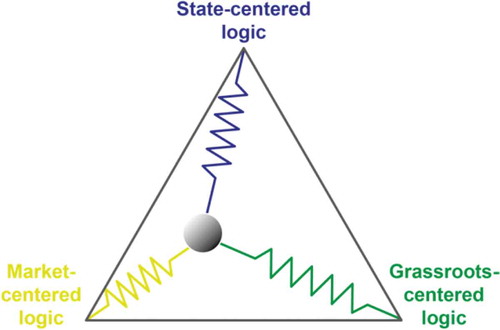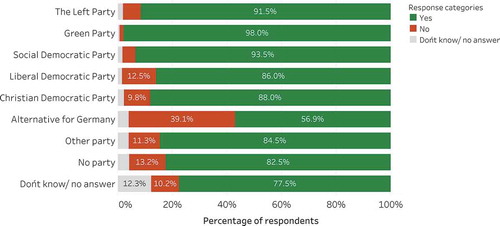Figures & data
Figure 1. The energy policy transition space of the Logics framework. Source: Lilliestam et al. (Citation2019) based on (Foxon Citation2013)

Table 1. Case selection of representative political parties. See supplementary material (sections S1.1, S2.1, S3.1, S4.1) for details on the party selection
Figure 2. Decarbonization ambition of the national policy pathways in the four investigated countries. Data: see supplementary material

Figure 3. Renewable power targets of each pathway in the four investigated countries. Data: see supplementary material

Table 2. The future role of potential flexibility options in selected European policy pathways. Colors indicate the presence or absence of a target, and text entries indicate the year of concrete targets (phase-out or expansion). Data: see supplementary material
Figure 4. Agreement with the statement ‘Spain should have a climate change and energy transition law, total and according to ideology (number of respondents = 1,000; results in %. Source: Lazáro Touza, González Enríquez, and Escribano Francés Citation(2019)

Figure 5. Degree of agreement with the statement ‘The power we produce should come from renewable energy sources as soon as possible, even if this means we have to pay extra for our energy for some years’, according to ideology (number of respondents = 934 who agree to having a climate change law; results in %). Source: Lazáro Touza, González Enríquez, and Escribano Francés (Citation2019)

Figure 6. General support for expanding renewable energy in Germany. Source: Wolf (Citation2020)

Figure 7. Support of German households for the expansion of specific flexibility options. Support for the expansion of interregional power grids (a), biomass power plants (b), and geothermal power (c). Source: Wolf (Citation2020)

